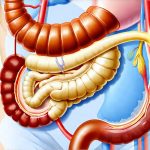Constipation is a common digestive issue that most people will experience at least once in their lifetime. While often uncomfortable, it’s rarely a serious medical condition. Understanding what causes constipation, recognizing its symptoms, and knowing how to manage it effectively can significantly improve your quality of life. This article will provide a comprehensive overview of constipation (K59.00), covering its definition, causes, symptoms, diagnosis, treatment options, and ways to live comfortably with the condition.
What is Constipation?
Constipation refers to difficulty passing stools, infrequent bowel movements, or incomplete emptying of the bowels. The frequency of bowel movements varies greatly from person to person; what’s “normal” for one individual may not be normal for another. Generally, having fewer than three bowel movements per week is considered constipation. However, the change in your usual pattern is often more significant than the absolute number of bowel movements. Beyond frequency, other indicators include straining during defecation, feeling like you haven’t fully emptied your bowels after a movement, and experiencing stools that are hard, dry, or small. Chronic constipation lasts for three months or longer. It’s important to differentiate occasional constipation, which is often related to diet or lifestyle factors, from chronic constipation, which may signal an underlying medical condition.
Common Symptoms and Associated Conditions
The primary symptom of constipation is difficulty passing stools. This can manifest in several ways, including hard, dry, or lumpy stools; straining during bowel movements; a sensation of incomplete evacuation (feeling like you still need to go even after going); and infrequent bowel movements. Less common symptoms include abdominal bloating, cramping, and nausea. In severe cases, constipation can lead to impacted stool – a large mass of hardened stool that cannot be passed naturally, requiring medical intervention.
Constipation isn’t just an isolated issue; it can sometimes be associated with other health conditions or contribute to them. Irritable Bowel Syndrome (IBS) frequently includes constipation as one of its core symptoms. Other related conditions include diverticulosis (small pouches that form in the colon wall), hypothyroidism (underactive thyroid), diabetes, neurological disorders like Parkinson’s disease and multiple sclerosis, and even depression. Certain medications, such as opioids, antidepressants, and iron supplements, can also cause or exacerbate constipation.
Causes and Risk Factors
Constipation arises from a complex interplay of factors affecting the digestive system. A primary culprit is often diet: insufficient fiber intake prevents bulk formation in stool, making it harder to pass. Dehydration exacerbates this issue as water is essential for softening stools. Lack of physical activity also contributes to constipation, as exercise stimulates intestinal muscles and promotes bowel regularity.
Beyond lifestyle factors, several other causes can contribute to constipation. Ignoring the urge to defecate regularly can weaken the natural reflex and lead to constipation over time. Certain medical conditions, as mentioned earlier (IBS, hypothyroidism, diabetes), directly impact digestive function. Neurological disorders can disrupt nerve signals controlling bowel movements. Medications – particularly opioids, anticholinerics, and calcium channel blockers – frequently have constipating side effects. In some cases, structural abnormalities in the colon or rectum, such as strictures or tumors (though rare), can physically obstruct stool passage. Finally, changes in routine, like travel or surgery, can temporarily disrupt bowel habits and lead to constipation.
Diagnosis, Treatment, and Living with the Condition
This section will cover how doctors diagnose constipation, available treatment options ranging from lifestyle adjustments to medical interventions, and practical strategies for managing the condition long-term and improving your quality of life. It will also address when seeking professional help is crucial.
Diagnosis and When to See a Doctor
Diagnosing constipation typically begins with a thorough review of your medical history and bowel habits. A doctor will ask about your symptoms, frequency of bowel movements, stool consistency, any associated pain or discomfort, medications you’re taking, and dietary patterns. In many cases, a physical examination is sufficient for diagnosis, particularly for occasional constipation.
However, if constipation is chronic, severe, or accompanied by concerning symptoms, further investigation may be necessary. These tests can include a digital rectal exam to check for blockages or abnormalities, blood tests to rule out underlying medical conditions like hypothyroidism or diabetes, a colonoscopy to screen for colon cancer or other structural issues, and/or a defecography (imaging test showing how the rectum functions).
You should see a doctor if you experience any of the following: constipation lasting longer than three weeks; severe abdominal pain or cramping; rectal bleeding; unexplained weight loss; changes in bowel habits that are significantly different from your normal pattern; or a feeling of incomplete evacuation despite frequent attempts to defecate. These symptoms could indicate a more serious underlying condition requiring prompt medical attention.
Treatment Options
Treatment for constipation varies depending on its severity and cause. For mild, occasional constipation, lifestyle modifications are often the first line of defense. This includes increasing fiber intake through diet (fruits, vegetables, whole grains) or supplements like psyllium husk; drinking plenty of fluids (water, juice, clear soups); engaging in regular physical activity; and responding to the urge to defecate promptly.
For more persistent constipation, over-the-counter remedies can provide relief. Bulk-forming agents (like psyllium) add bulk to stool, making it easier to pass. Stool softeners help retain water in the stool, softening it. Osmotic laxatives draw water into the intestines, loosening the stool. Stimulant laxatives stimulate intestinal muscles, promoting bowel movements – these are generally reserved for occasional use due to potential dependency.
In some cases, a doctor may prescribe stronger medications, such as prescription-strength laxatives or medication to address underlying conditions contributing to constipation (e.g., thyroid hormone replacement therapy for hypothyroidism). In rare instances of severe impacted stool, manual disimpaction by a healthcare professional might be necessary. Biofeedback therapy can also be helpful for people with chronic idiopathic constipation, teaching them how to coordinate the muscles involved in bowel movements.
Living with Constipation
Managing constipation long-term requires consistent lifestyle adjustments and proactive strategies. Establish a regular bowel habit by attempting to defecate at the same time each day, ideally after a meal when natural digestive processes are stimulated. Maintain adequate hydration by drinking 6-8 glasses of water daily. Gradually increase fiber intake to avoid bloating or gas; introducing it slowly allows your body to adjust. Exercise regularly – even moderate activity like walking can make a significant difference. Avoid ignoring the urge to defecate.
Pay attention to any medications you’re taking and discuss potential constipating side effects with your doctor. Consider keeping a food diary to identify foods that trigger or worsen constipation. Stress management techniques, such as yoga or meditation, may also help regulate bowel function, as stress can often exacerbate digestive issues. If you have chronic constipation, regular follow-up appointments with your doctor are essential for monitoring your condition and adjusting treatment as needed.
Summary
Constipation is a common digestive issue that can range from mild discomfort to significant distress. Understanding the causes—dietary factors, lifestyle choices, underlying medical conditions, and medications—is key to effective management. Treatment options span from simple lifestyle changes like increased fiber intake and hydration to over-the-counter remedies and prescription medications. By adopting proactive strategies, seeking timely medical attention when necessary, and working closely with your healthcare provider, you can effectively manage constipation and improve your overall well-being.
Have you been diagnosed with constipation? Share your experience or ask your questions in the comments — we’re here to help.


















